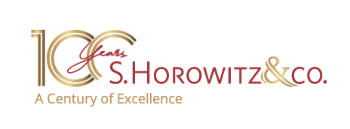The Tel-Aviv Stock Exchange (“TASE”) was established in 1953 as a private and limited non-profit organization, without any share capital. Its 26 members – banks and large investment houses – are the only entities with access to trading.
Since the end of 2007, the scope of trading on the TASE has significantly decreased, largely due to reduced foreign investment and tighter regulation, as well as due to the effect of global slowdowns. Searching for different ways to improve trade and increase liquidity, the Israeli Securities Authority (the “ISA”) appointed a committee to research and review the various available options (the “Committee”). In its report, the Committee recommended changing the ownership structure of the TASE to a for-profit corporation and separating ownership from access to trading, together with implementing additional measures, such as introducing new financial products, and issuing new types of orders, two of which – “Stop Loss” and “Iceberg” – are in the process of being implemented.
The transition from a non-profit organization to a for-profit corporation, with the possibility of even listing its own shares for trading, is a step adopted by various exchanges in developed countries over the last two and-a-half decades. Competition between local and foreign exchanges has increased, due to accelerated technological advancements and the vast improvement in accessibility to foreign markets. The proposed transition to a for-profit corporation will provide the TASE with incentive to exercise greater efforts in keeping up with competition and to invest resources in an endeavour to improve trade.
The suggested change of structure would also separate ownership from trading access, which would instead be granted via licenses, and so create incentive for improved corporate governance and a more market-oriented organization. It is hoped that this, in turn, will have the effect of attracting new foreign investors, lowering trading fees, restoring the public's faith in the stock market and, ultimately, reviving commerce.
The ISA has adopted the Committee's findings and recently published a bill (the “Bill”) for the amendment of the Securities Law, 1968 (the “Securities Law”) which will allow changing the structure of the TASE to a for-profit corporation, as noted above. In addition, the Bill aims to facilitate the establishment of additional stock exchanges in Israel, in order to promote competition which is absent, as the TASE is currently the only Israeli stock exchange.
The Bill contemplates four principal amendments to the Securities Law. First and foremost, it sets out the requirements for obtaining a licence to establish and operate a stock exchange. The applicant company must be a listed Israeli company or a foreign company registered in Israel within the meaning of such term in the Companies Law, 1999 (the “Companies Law”). In addition, the applicant company must comply with and maintain the relevant equity and insurance requirements as directed by the Minister of Finance (the “Minister”) and must be approved by the ISA, which could, for example, deny grant of the licence on the grounds of an unreliable officer or controlling shareholder.
Secondly, in order to supervise the control of shareholdings and other means of control in TASE or other stock exchanges, once established, the Bill requires that approval be sought from the head of the ISA for holding both 5% and 20% of the stock exchange's means of control, and that the Minister's approval be sought for holding 50% of such means of control. Possible grounds for withholding approval could be unreliability, the public's interest and the fair and proper management of the TASE.
The Bill also sets out various requirements with regard to corporate governance, in addition to those specified in the Companies Law. For example, it requires a majority of independent directors, a director appointed by the Minister and a director appointed by the Governor of the Bank of Israel. Another requirement is that the board of directors will need to appoint an internal auditor, as well as an audit committee, a regulation committee and a pensions committee.
Last but not least, the Bill aims to broaden the ISA's supervisory powers to encompass both owners and members of the TASE, which – as elaborated above – will no longer be the same.
Changing the TASE ownership structure to a for-profit corporation and separating ownership from access to trading is an important, positive transformation, which could contribute to the Israeli stock market if carried out wisely and accompanied by other improvements, such as enabling the trading of advanced financial products and updating technology. However, the ISA should consider the wisdom of supporting the establishment of an additional stock exchange. Creating a local competitor might cause further reduction in the number of companies traded on the TASE, which is struggling to stay relevant. As the first objective of the Bill is to allow the TASE to compete with foreign stock exchanges on a global level, such result might be counterproductive.
The Bill is still in the early stages of its development, having been only recently published by the ISA and still being open to public comments and suggestions. In addition, with the upcoming parliamentary elections, the contemplated timeline for its legislation is currently unclear.




